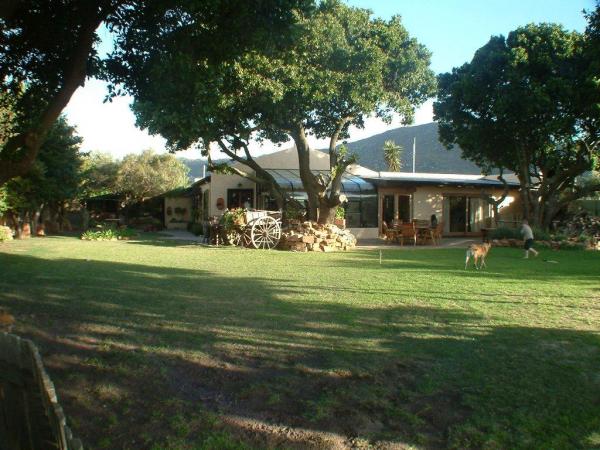Waldorf school to open in Masiphumele

Siyakhula Waldorf Primary School will open in Masiphumele township near Fish Hoek, Cape Town, in January 2014.
In 2008, a group of women from Masiphumele – Lucia Ntombovuyo Jange, Akhona Gom, Zanele Rasimeni and Nolupho Phama – started taking young children into their home when they were left wondering the streets while their parents were out at work.
Rasimeni said that their motivation was to get children off the street and encourage a sense of community. She said, ”The sense of community is much stronger back home in Engcobo in the Eastern Cape. If a child does something wrong, a neighbour will tell them off and the children will show respect to their elders.” She said that in Masiphumele, this does not happen.
The number of children they were looking after grew quickly to 50. They were between the ages of two and a half and six years old. It was quite a squeeze in Zanele’s home made from corrugated iron and cardboard. The children did not have access to a toilet and had to relieve themselves in the wetland area behind her home.
The women heard of a community organisation called Work for Love who were supporting Educare centres and running health and employment programmes. The four women decided to approach the organisation to see if they could help their project develop.
Work for Love immediately offered a volunteer five days a week to help look after the children. She saw how desperately they needed resources, food for meals and how important it was that the women be paid a salary so that the project could be sustained in the long term. She began fundraising through her friends and family in Norway.
Thanks to the funds raised, in February 2010, the project moved to a brick building in Masiphumele and became an official Educare centre. Gom and Rasimeni were introduced to the Waldorf education approach and were asked if they wanted to train as Waldorf teachers. They have now qualified and look after 40 children five days a week from 8am until 4pm. Phama cooks all their meals and runs a laundry service from the Educare kitchen to raise further funds for the school. Ntombovuyo Jange died of heart disease shortly after the partnership with Work for Love began. On her death bed she asked for the project to be called Siyakhula: “we are growing” in Isixhosa.
After returning to Norway, the volunteer and her husband continued their fundraising efforts and raised over R250,000. These funds helped provide the money to buy Chameleon Gardens, a beautiful one acre property under the milkwood trees adjacent to Masiphumele. The property is currently being renovated and will become the Siyakhula Primary School.
The school will run three Educare Classes from January 2014. Grade R and Grade 1 classes will begin in 2015.
Work for Love fundraises to help pay for children to attend their Educare Centre. The primary school will follow the same model, where parents will be ably to apply to pay less depending on their circumstances. The Educare fees are R170 per month and the primary school fees will be about R350 per month. Two meals a day are included in this fee.
The school is intended to help the Masiphumele community develop and will also offer adult education classes in the evenings, as well as a Wellness Morning once a week on a contributions only basis.
Work for Love founder Nicola Cox hopes the school will become an excellent bilingual school (Xhosa and English) steeped in the Xhosa culture. Her aim is that it will grow into a high school that develops well-rounded, versatile, confident and creative young adults who want to a make a difference in the world.
Waldorf schools adopt an approach to education based on the theories of Austrian Philosopher Rudolph Steiner. He believed that education should encourage the imagination in learning and develop creative, as well as analytical thinking. Educare children are taught through imitation and example and story telling and outdoor play, while primary school teaching follows an arts-based curriculum that includes visual arts, drama, artistic movement, vocal and instrumental music and crafts, alongside traditional academic subjects. Waldorf education also allows for individual variations in the pace of learning, based upon the expectation that a child will grasp a concept or achieve a skill when he or she is ready. Cooperation takes priority over competition.
Work for Love are funding five people from Masiphumele or a nearby township to train as Waldorf teachers. Three people chosen will undertake the 4 year full time Bachelor of Education course at the Centre for Creative Education in Plumstead, Cape Town. They will then be expected to commit to working at the primary school for four years. The other two successful candidates will attend the Early Childhood Development Training Programmes at Level 4 and 5. This training will be for four years part-time, alongside working at the Educare centre. The bursaries will cover the course fees and provide a transport stipend.
So far, two people have been accepted. On 1 December, the last open day will take place at the Centre for Creative Education where candidates can apply for the training beginning in 2013. Work for Love together with the training centre will choose two candidates in mid-December and will leave one space open until mid-January.
Work for Love are seeking donations of R100 a month to help support the school.
Support independent journalism
Donate using Payfast

Don't miss out on the latest news
We respect your privacy, and promise we won't spam you.
Next: South African students at forefront of massive astronomy project
Previous: St James tidal pool

This article is licensed under a Creative Commons Attribution-NoDerivatives 4.0 International License.
